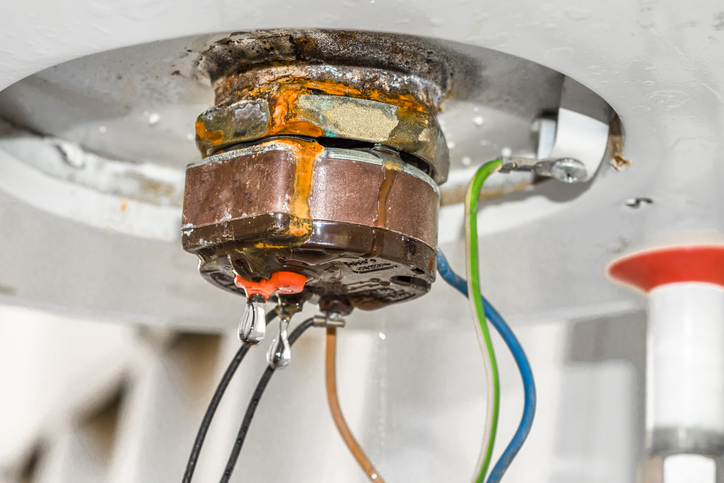- Home
- How to
- How to
- Services
- Services
- Maintenance Plan
- Location
- Guides
- Guides
- No Hot Water – Self help
- Unvented Water Heater
- Unvented Water Heater Faults
- G3 Building Regulations
- Thermal Store Water Heaters
- Thermal Store Faults
- Gledhill ElectraMate
- Gledhill PulsaCoil
- Gledhill Torrent
- Gledhill Stainless Lite
- OSO Unvented Heater
- MegaFlo – Heatrae Sadia
- Santon Premier Plus
- Albion
- Manco Riverstream and Powerstream
- Manco Gladiator & Stirling
- Telford Tempest
- Safety Considerations Unvented Cylinders
- Reduce Your Water Heating Bill
- Range Tribune
- About Us
- About us
- Forum
- Contact

-
Call Now
Specialists in Electric Hot Water Cylinders
Water Heater Leaking: The Most Common Causes
Unvented cylinders offer outstanding performance and reliability. If you’ve primarily used older-style vented cylinders, the difference in terms of water pressure and availability at the taps is considerable. However, unvented cylinders are not without their challenges.
Unless they’re properly maintained and inspected every year, they can develop leaks that compromise performance and may damage wood and other materials in the surrounding area. In this post, we’ll look at some of the most common causes that lead to a water heater leaking.
Normal Expansion and Contraction
While you might think the walls of your cylinder are static, the fact is that metal expands and contracts with heat and pressure. When your cylinder is full of hot water and is at full pressure, the walls bow outward slightly. They contract as the water temperature drops through use and as cold water from the mains flows in. This expansion and contraction cycle can create small drips through the tundish, but it is normal.
Mains Pressure
The pressure within your unvented cylinder is created by two things – heat and the flow of water from the mains. If your mains water pressure is too high, it can cause an overpressure situation within your cylinder. While your mains pressure will usually remain about the same at all times, some situations can cause it to rise, which can then cause the pressure relief valve to open and water to flow through the tundish.
Cylinder Pressure
If your cylinder experiences high pressure, it may begin to leak. You’ll see a constant flow of water through the tundish. Some of the more common causes of high pressure within an unvented cylinder include a faulty pressure-reducing valve or expansion vessel, or improper pressure settings for the system. Do not attempt to adjust the pressure or replace a faulty valve on your own. Contact a G3-qualified engineer.
Temperature and Pressure Relief Valve
Unvented cylinders are designed with safety in mind. The temperature and pressure relief valve (TPRV) is designed to open if the cylinder’s temperature or pressure rises too high to prevent an explosion. However, these valves wear over time. They can also fail outright. In those cases, they may stick open, which will allow water to flow out and through the tundish. Again, do not attempt to replace the valve on your own. Only a G3-qualified engineer should handle repairs or replacements.
Damage to the Cylinder
The most catastrophic reason for seeing water around your water heater is damage to the cylinder. Aging cylinders can rust through, but any cylinder can be damaged through impacts and other events, leading to punctures. In these situations, the system needs to be turned off. Call a qualified engineer or plumber immediately.
Is your unvented cylinder leaking? Are you noticing water flowing through the tundish? Have you spotted water on the sides of the cylinder (condensation) or on the floor nearby? Leaks can be dangerous – contact EasyFlow to schedule an inspection by one of our G3-qualified engineers.
Iain, Nantwich
13 October 2025
Annual Service
Excellent service as always.. Highly recommendable.
Peter , Nantwich
16 September 2025
Annual Service
Very pleased with all aspects of the work completed by your knowledgeable staff.
Barry, Royton
13 June 2025
Replacement Valves
Tom, Manchester
20 May 2025
Replacement Valves
Raymond, Lancashire
1 May 2025
Annual Service
Vickie, Didsbury
10 April 2025
Annual Service
Raymond, Reddish
17 March 2025
No Hot Water
Brenda , Liverpool
12 February 2025
Installation
Gianfranco, Uk
18 February 2025
Annual Service
As always the serrvice was done efficiently and the surrounding area left clean and tidy.
Anne, Manchester
30 January 2025
Annual Service

© 2026 EasyFlow Water Limited. All rights reserved








Find out what our clients are saying about the services we provide
Click to view